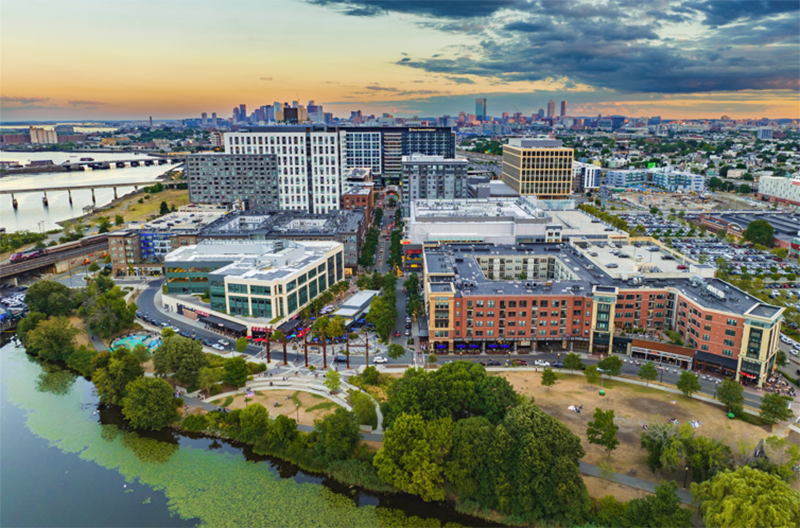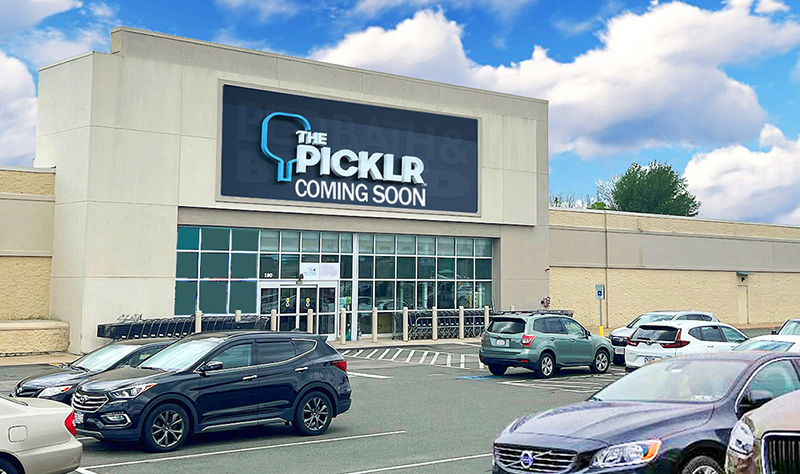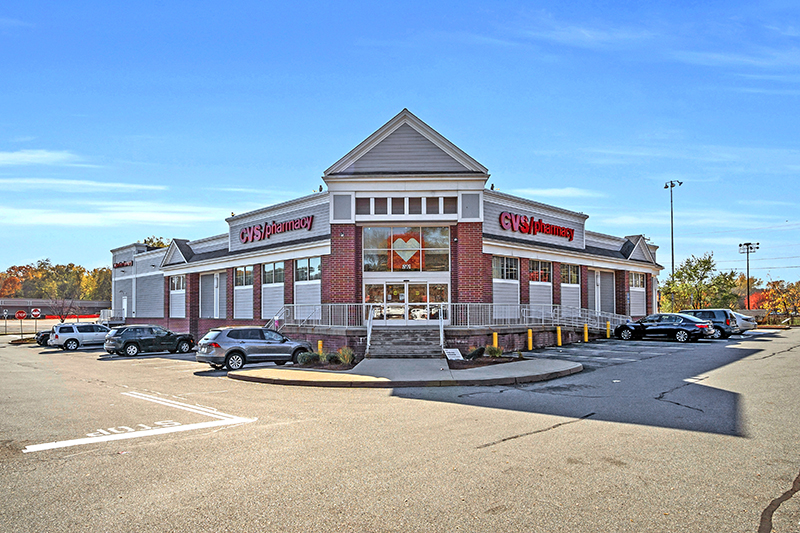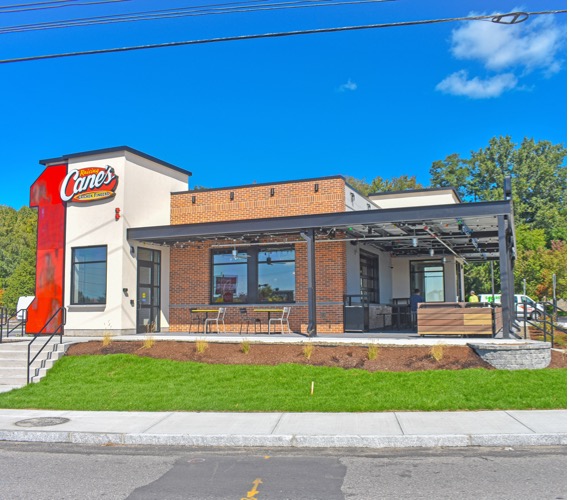Assembly Row brings new dining options -
5,965 s/f Posto and 5,420 s/f Toca Chida

Somerville, MA New food and beverage options are coming to Assembly Row this year including local concepts Posto (5,965 s/f) and Toca Chida (5,420 s/f). Plus, Amelia’s Taqueria (1,490 s/f) just opened their fifth, fast-casual location on Revolution Dr. next to Mike’s Pastry.
Posto will open a new takeout market/cafe alongside their full-service dining room. Customers can expect to find Posto staples on the menu including handmade pasta, grilled meats, fish and poultry, and their famous Neapolitan wood-fired pizza. Toca Chida, a full-service restaurant and bar, is the latest culinary venture by chef and restaurateur Chris Damian. The restaurant will feature a twist on Latin American cuisines, complete with an extensive bar program centered around agave-based spirits.
“Bringing Posto to Assembly Row is a terrific addition for everyone – hotel guests, visitors, shoppers and residents alike,” said David Middleton, vice president and general manager of Assembly Row. “We are continuously looking to deliver a healthy mix of local and national concepts to provide a diverse selection for the community. We hope the addition of Posto, Toca Chida and Amelia’s Taqueria give our customers even more reasons to come back and visit.”
In addition to these new tenants, in the past year Assembly Row welcomed the following restaurants, each of which introduced new concepts and cuisines to the neighborhood:
• Pokemoto, Hawaiian style poke bowls, opened March 2024
• An Nam, Vietnamese grill, opened November 2023
• Tribos Peri Peri, inspired by cuisine from Portugal, Mozambique, and Southern Asia, opened summer 2023.
Mace of KeyPoint Partners negotiates 36,192 s/f lease for The Picklr at Endicott Square
Danvers, MA KeyPoint Partners (KPP) negotiated a lease with the nation’s premier indoor pickleball venue The Picklr at Endicott Sq. Vice president of retail brokerage Don Mace negotiated the transaction on behalf of the landlord.




.jpg)


.png)
